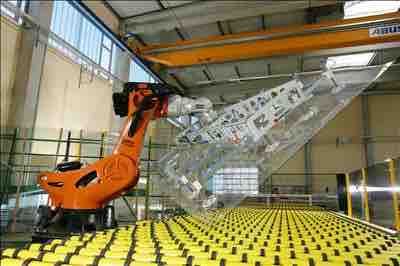The Information Age has impacted the workforce in several ways. It has created a situation in which workers who perform easily automated tasks are being forced to find work that is less automated. They are being forced to compete in a global job market, they are being replaced by computers that can do jobs more effectively and faster. This poses problems for workers in industrial societies.
Automation
There is another way in which the Information Age has impacted the workforce: automation and computerization have resulted in higher productivity coupled with net job loss. Automation is the use of control systems and information technologies to reduce the need for human work in the production of goods and services . In the scope of industrialization, automation is a step beyond mechanization. Whereas mechanization provides human operators with machinery to assist them with the muscular requirements of work, automation greatly decreases the need for human sensory and mental requirements as well. Automation plays an increasingly important role in the world economy and in daily experience.

Automation
Automation is one of the ways in which the modern technology has impacted the workplace.
Automation has had a notable impact in a wide range of industries beyond manufacturing. For example, telephone operators have been replaced largely by automated telephone switchboards and answering machines. Medical processes such as primary screening in electrocardiography or radiography and laboratory analysis of human genes, sera, cells, and tissues are carried out at much greater speed and accuracy by automated systems. Automated teller machines have reduced the need for bank visits to obtain cash and carry out transactions. In general, automation has been responsible for the shift in the world economy from industrial jobs to service jobs in the 20th and 21st centuries.
The service sector consists of the "soft" parts of the economy—activities where people offer their knowledge and time to improve productivity, performance, potential, and sustainability. The basic characteristic of this sector is the production of services instead of end products. Typical examples of knowledge workers may include software engineers, architects, engineers, scientists and lawyers, because they "think for a living."